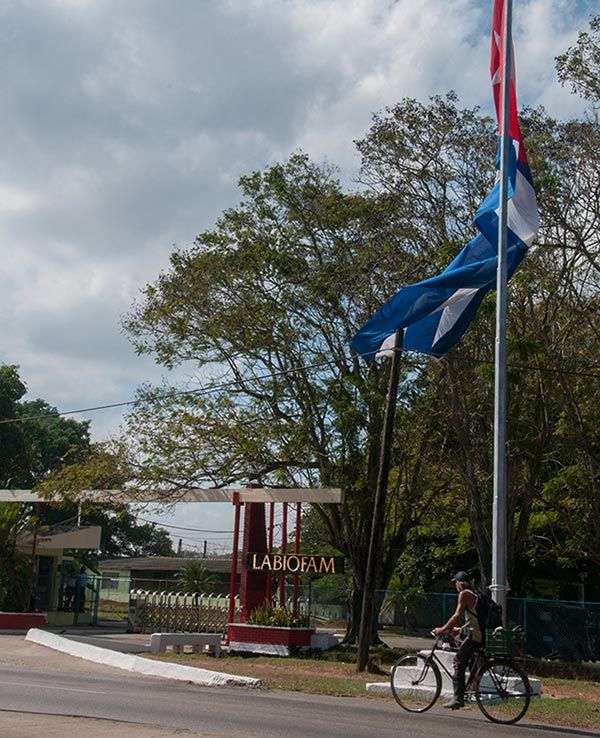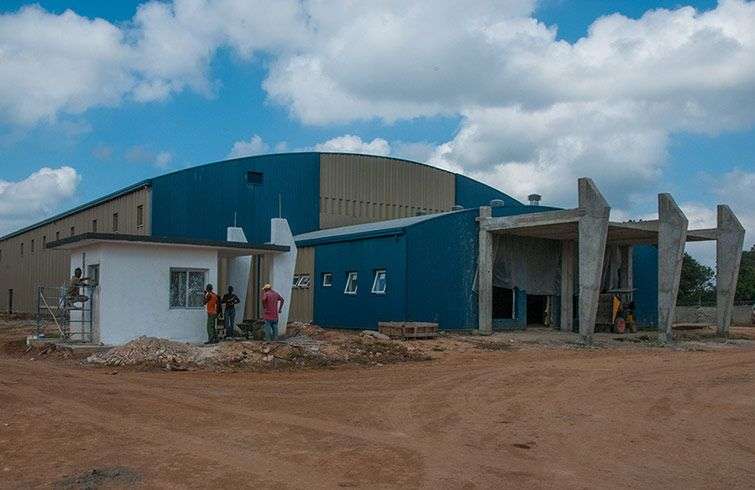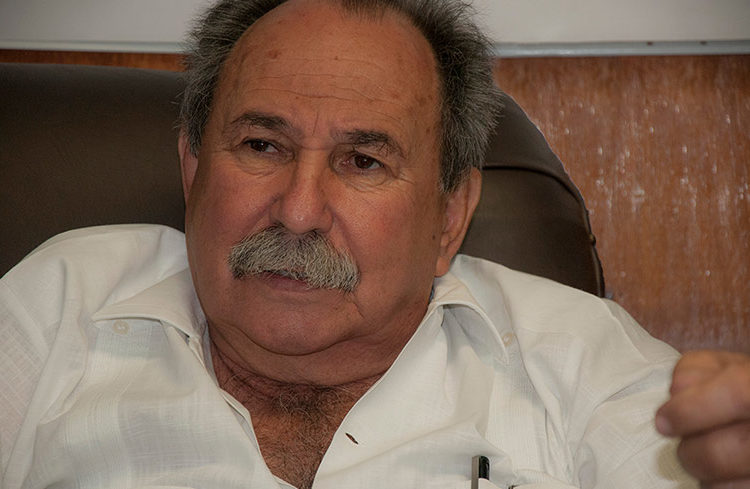It is one of the most successful companies in Cuba despite being 100 percent state-run. Its structure and working mechanisms are perfectly inserted in the economic changes taking place in the island.
Labiofam is not only self-financing and reinvests its profits but contributes 40 percent of them to the state. In addition, it joined the South-South exchange politics that Havana encourages in its trade relations.
OnCuba spoke with José Fraga, its president for 17 years, who assures us that “the most damaging thing to the state company is bureaucracy” and asks on the government one thing, “let us continue working as we have done so far.”
What products does Labiofam have?
We have 380 technologies, over 30 viral and bacterial vaccines for animal health, 21 diagnostics equipment, dietary supplements for human consumption, algae (spirulina), homeopathic medicine, disinfectants, toiletries and cleaning, starches for children with gluten intolerance , biofertilizers and biopesticides, probiotics, food (rice, beans, pork, eggs, lamb, rabbits), essential oils, fragrances for the French market.
Is Labiofam an efficient company?
For 18 years we haven’t received state funding, in any currency. We finance productions that we sell in local currency, as pharmaceutical drugs even though we buy many inputs in foreign currency. We finance the production of starches and probiotics for children’s hospitals. All this comes out the budget revenues from exports. If we measure the efficiency by self-financing capacity we can say we have a good level.
For 20 years we have grown annually by 30 million pesos (CUP), there is a constant growth. In foreign exchange earnings, even though many of our productions are used nationally, we sustain and fund our own investments. And we can continue self-financing when the currency is unified.
How does a state enterprise manage to be efficient?
The most damaging thing to the state company is bureaucracy, the mechanisms, restrictions, limitations imposed on them.

Generally private, cooperative or family businesses are supposedly more prosperous but the truth is that in the world every day thousands of these companies go bankrupt.
In the case of socialism there is a principle that is basic, the exemplarity of managers. In the case of our country wealth is in the morale of the men. But if man is not motivated nothing gets done.
In Cuba the worker has satisfactions in areas such as health and education but needs money to meet his other needs. It is indispensable for them to have an adequate level of income for their work and we achieved that, here we pay for results, if you work well you earn well. We have done so in agriculture and you need to see the change that occurs when these men have participation in earnings.
Is Labiofam the business model that the government aims to generalize?
I think so. We have managed to have the ability to enter the market and make decisions. Sometimes they have labeled us as bold; we have made decisions outside the establishment.
We respect but we make decisions when we need to do it, otherwise it would not make sense for us to be the leaders of the company. The State must require me to comply with the government order, with tasks, with the productions.
But how can you reinvest if the state gets all the money from the company?
For some years there is a closed scheme for some companies, where the company gets a percentage and the rest is contributed to the country. That allows us to have an amount to ensure not to be in zero. And therefore we contribute 40 percent of revenues.
In addition, Labiofam has external credit lines. The investments abroad have the benefit of having an advance payment and that gives you ability to secure investment and to operate.
What does Labiofam contribute with to the South-South relationship that the Cuban government projects?
We provide services in disease control in about 8 countries, especially in Africa and Latin America. Angola with 140 specialists and Ecuador with 80 are the most important but we also have staff in Ghana, Equatorial Guinea, Gabon, Burkina Faso, Bolivia, El Salvador, Vietnam, Philippines, Indonesia, Sri Lanka and Venezuela.
We work in controlling epidemics of malaria, transmitted by rats and mice, using biological means without using chemical insecticides that have harmful effects on health and environment.
Do you provide services only?
No, we are also building factories in the Third World; in the early days of 2015 we must finish one in Dar El Salam, Tanzania. It is a biotechnology plant for the production of biopesticides and biofertilizer for agriculture.
We in these industries not only build but we do technology and knowledge transfer, and provide technical assistance, management and production under license. We will provide market to that industry because we need these same products for the services that we provide in Africa.
We are also building these plants in Ecuador, Bolivia and Ethiopia.
Although it is a little late the world is trying to reduce the chemicals in pesticides and fertilizers. The European Union said that from 2015 it will remove products containing these chemicals. It will then seek solutions because the truth is that the world market today has no ability to replace them for biological products.
Banana trees, for example, are now globally threatened by a fungus, and to control it chemical fungicides should be applied in industrial quantities. In Costa Rica they give up to 85 applications of fungicides and the rest of the world between 25 and 45. We have developed two highly effective organic fungicides to protect the banana trees, we are doing the tests in Ecuador to register them.
We currently have 54 product lines for different pest controls. We produce efficient microorganisms from an ancient Japanese technology that are able to fertilize and control pests.
We ourselves are building industries to produce all this in Cuba, today we have some but they are small so we are building one in Havana, one in Villa Clara and will begin one a Granma. We want to replace the majority of chemical fertilizers and insecticides within three years and also export.
If you could sit down with the economic policy makers what would you ask for the company?
I would ask them to leave us to continue working as we have done so far. Because sometimes concerns about foreign investments and risks begin, but the truth is that if you do not take risks you accomplish nothing. We must be responsible and take all measures to ensure that risks will not become a reality but you must take risks.











